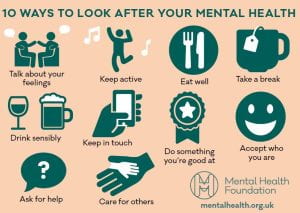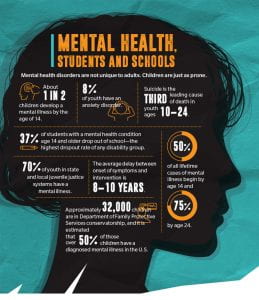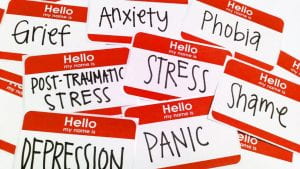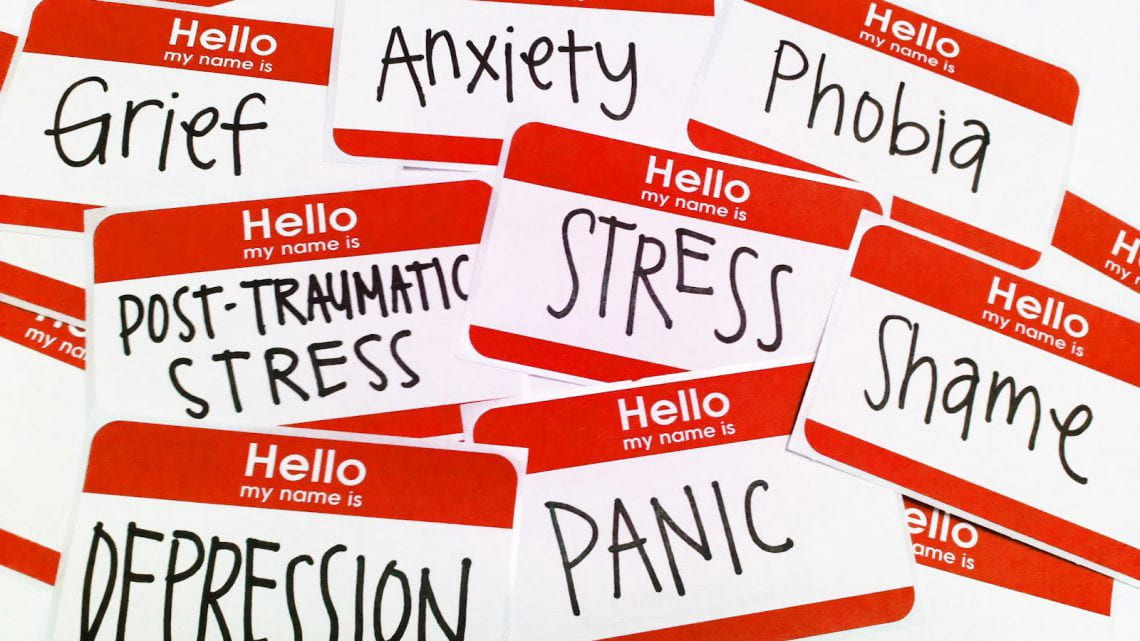Recently, I sat and had conversations with fellow peers in graduate programs and professional schools ranging from subjects such as Master of Art Education to Medical School and Graduate studies in Nonprofit Management. We talked about mental health resources and access within their schools and professors. Our conversations ranged tremendously, with some saying they are provided with resources and time off if stressed, to some feeling like they are not seen or cared for within their programs but are cared for by their professors. With the immense pressure of graduate and professional schools, students tend to go through many life changes that have had effects on their mental health. Graduate programs and professional schools contain an intense climate and harbor a strong need to succeed. With the stress, long hours studying, and a lost balance of life, many students do not feel that they are provided with the proper mental health resources. Mental health is typically overlooked or not given as much importance when considering human rights. The right to mental health is just as important as any other human right and has increased importance at the Human Rights Council. The balance between studies, life, work, and outside obligations, takes a toll on any individual. Ensuring that every person has access to free or affordable mental health services has been a goal for human rights advocates and organizations. The UNHCR notes that the right to health includes mental health.

Mental Health in Graduate School
A study done by Harvard found that students within graduate schools are three times more likely to experience mental health struggles than an average individual. The study conducted a survey of over 500 students in graduate programs and found that in every 10 students, one had suicidal thoughts over a two-week period. With the constant stress and studying, graduate students begin to develop depression and anxiety. The environment of graduate schools differs immensely when compared to the undergraduate level. Rather than having to attend class and prepare for exams, they spend their entire time—often 2-6 years—dedicated to a research project. Typically, 60 hours per week is spent preparing and studying research.
Many factors and challenges aid in stress for graduate students: poor mentorship, lack of access to counseling services, lack of training, and leave-of-absence policies. The list can go on and on about the challenges faced by graduate students. In addition, the biggest factor I found is the academic mindset. There is an embedded mindset within professional studies that a failure is never an option. Every student tries to be the best, the smartest, and the most achieved. This leads to many bad outcomes; a 2019 survey of Ph.D. students found that 76% of students work more than 40 hours a week on their research and projects and cannot attain a work-life balance. They have no room to take a breath or a break. As noted by a student, they said, “if you slack, you are out.”

Mental Health in Professional Schools
Studying to become a doctor, lawyer, dentist, etc., carries immense stress. Students within professional schools dedicate their entire lives to a program in the hope of getting their dream careers. But the process of getting into professional school and finally being accepted to study all have factors that can deter one’s mental health. Within law school, it has been found that depression rates have increased from 10% to 40% among students. 96% of law students and 70% of medical students face significant stress. Factors that have been found ranging from loneliness, rejection, alcohol and substance abuse, academic performance, anxiety, depression, peer pressure, and the list can go on and on. There is constant stress and worry about entering the professional field. If one gets a good score on their exam, that determines the path of their career. While in professional school, the worry of not being the smartest, being able to handle the stress, or burn out. Although the studies and information are stressful, and the process of becoming a doctor or lawyer does contain high stakes, there still needs to be a fixation on acknowledging mental health. Many students are extremely gifted but get slowed down and begin facing challenges due to mental health neglect.

Where to Go from Here
It is very important for every institution and university to have the proper mental health resources; it is just as important to make sure these resources are constantly being worked on and evolved over time. The stigma and thought that students must be overworked and can’t take breaks must be removed. Within higher studies, a work-life balance must be implemented to ensure every student is learning and working at their highest potential. Over time, there have been drastic improvements in mental health awareness worldwide, but that is just a starting point. Mental health resources and accessibility must be a requirement within all universities and institutions. Below are resources for students and professionals to maintain and implement positive mental health practices.

For students at UAB:
UAB has a Student Counseling Service that provides mental health services, prevention, and outreach. The services include counseling and emergency support. Resources can be found here.
Guide to mental health practices in graduate/professional schools: https://www.apadivisions.org/division-6/publications/newsletters/neuroscientist/2019/07/grad-school-healthy
Managing Mental Health: https://www.nature.com/articles/d41586-021-01751-z
Books on mental health practices: https://www.healthline.com/health/mental-health/mental-health-books

